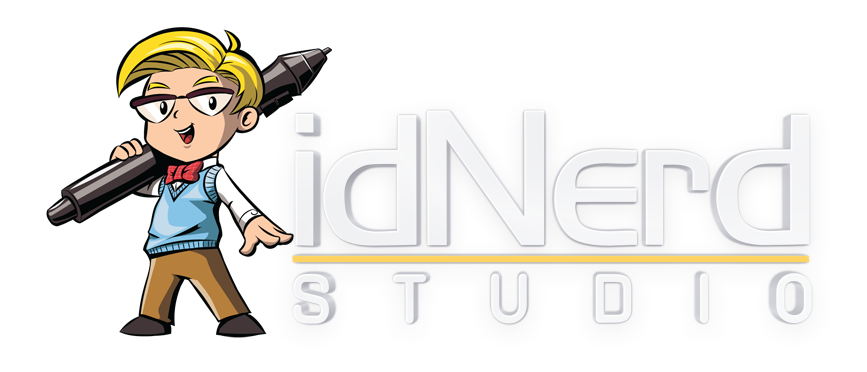The Ultimate Guide to Discovery Sessions (2022)
Contents
What is a discovery session?
Why do we need discovery?
What's the format of discovery?
Who's involved?
How much does a discovery session cost?
Why price a discovery session?
The "problem" with pricing discovery
Discovery focused on the UX/User Journey
Creatives: lead by example
Concluding remarks
What is a discovery session?
The best way to think of a discovery session is like a real-time, transparent and collaborative project brief.
Whereas a project brief is often a one-sided interpretation of client wants, the discovery session is like a high-level workshop. It allows all the stakeholders and experts to meet, explore ideas, ask questions, and set goals.
Above all, when a client isn't clear on what they actually want, a discovery session helps the project team clarify those goals.
Discovery requires a little more work at the start of the project, but is much more effective than a wishy-washy pitch.
It should also never be free.
As we will explain, charging for discovery meetings actually helps both parties.
Why do we need discovery?
Hey, creatives! Have you ever screwed up your project timeline so bad you've had to do one-too-many OTs? Ever been told by a client that they want a change at the ELEVENTH hour? Ever started a sentence with... "If you had just told me this at the beginning..."?
And clients: Have you ever looked at the final product and been like, "this is not what I wanted"? Ever wished your agency would just sweep you off your feet with great ideas and even greater plans? Ever started a sentence with... "Could you just make it a little more..."?
A discovery session mitigates miscommunication, misinformation and overall DISASTER by:
Allowing the project team and client to identify the project goals, requirements and schedule WELL BEFORE the project starts.
Giving both the project team and client a better understanding of budget and other constraints so the outcome is realistic, rather than idealistic.
Allowing the project team to explore potential design solutions that clients can say they like - or don't like - in a formal space.
In other words, nothing comes out of the woodwork at the last minute. Nobody's slamming their head into the keyboard at midnight. Everyone's on board and there are no unwelcome surprises. Hallelujah!
What's the format of discovery?
Agencies will do discovery in different ways. The meeting can be held in-person or online. It can be one big group meeting or many small meetings.
Depending on the scale of the project, there may be deliverables like a write-up report. A PDF report is a good idea for large projects, to make sure that there is no misinterpretation. It makes everyone accountable, and nobody can go, "But I didn't want that..." because it's in print!
(You can also record Zoom meetings!)
But the common attribute of the discovery phase is that it is an in-depth discussion between the project team and client.
Who's involved?
The major element of discovery is that it includes all the project stakeholders. If you're unclear on whom those stakeholders are, you can refer to the RASIC model:
R: Responsible. The person who is ultimately responsible for the deliverable of the project. On both the client side and project team-side, there are 'responsible' actors who execute or create the project.
A: Accountable. The person who is accountable for the project and approves the project.
S: Supporting. The people committed to the project's completion by providing material resources or time.
I: Informed. The people informed about the project updates and offer input, but are not responsible for final decisions.
C: Consulted. The people who provide the most valuable insight or key information into the project, but not involved in the execution of the project.
How much does a discovery session cost?
Typically, discovery is priced at around 5% to 10% of the overall project value.
For example: if the rough estimate for the project is $30,000, the discovery would be priced at $1,500 to $3,000.
Why price a discovery session?
Paid discovery sessions are nothing new. It’s standard practice for most agencies in North America.
In the Hong Kong market, we’re generally very familiar with the concept of paying people for their expert insights. 1-on-1 consultations, expert networks, expert surveys... Hong Kong business professionals, companies and brands pay for insights all the time.
All the time.
There are even companies dedicated to connecting professionals with expert on specific topics, businesses and industries.
But, for some reason, people feign ignorance about this FACT when it comes to paying creative directors for their insights.
Discovery is more than just talk...
A discovery session differs from a conversation with an industry expert in two major ways:
Discovery can develop into coverage of the full project by the same agency. If a client pays for the discovery phase, they could consider the process something like a holding deposit. It's a sign that the client values the expertise of the agency, thus building mutual respect and a strong working relationship from the start.
Discovery is a two-way street. As a client, discovery is an opportunity to access decades worth of knowledge and experience, customized to your business goals as you articulate them.
The "problem" with pricing discovery...
The major 'problem' with pricing discovery is not really a problem at all. Some clients are hesitant to pay for the service because they aren't familiar with discovery - or the agency.
Clients don't know that discovery is even a possibility.
As a client, you are more than encouraged to look at design inspiration, competitor references and materials to determine the gist of what you want.
But a discovery session helps you with a fortified, actionable plan that makes best use of your budget.
If a studio offers this service, we 100% recommend you move forward with discovery instead of putting down a full deposit for a project.
Even if you have hesitations about whether a small firm can handle the scale of the project, the discovery phase would typically include technical discovery. Through technical discovery, the project team can determine whether it’s technically feasible for the agency to execute the project. That could mean:
Hardware and software requirements
Manpower hours / available schedule
Technical skill set (e.g. programming language, certification)
(And if the agency is not able to execute the project, a client has a discovery report that they can take to another agency or production house with EVERYTHING they need to move forward with the project.)
Discovery focused on the UX/User Journey
As the Creative Director of idNerd Studio, my focus is on integrating technology with creativity for a customer-first experience.
We get a lot of clients asking for VR, XR, MR, AR... all the R's. And we have the capabilities to provide our clients with all sorts of cool tech.
But our studio mission is how to make advanced technology relevant to the customer. For us, discovery sessions are a great way to uncover the purpose of the project. Particularly, we like to discover why a client is drawn to one technology over another, and explore the creative possibilities there.
In our sessions, we tend to talk about outcomes more than deliverables first.
In other words, how do you want to make your customer feel? What do you want your customer to think about when they look at your product? What do you want them to do?
How can we heighten feelings of joy, curiosity or longing with the available technologies and our creative ideas?
Discovery focused on the user journey is why we love doing discovery sessions.
Because, sometimes, what a client says they want... is not what their customers want.
Creatives: lead by example
If you're a budding creative, do yourself and other agencies a favor: charge for discovery. Paid sessions are in your best interest - as well as the industry's.
Here's 4 reasons why:
Your expertise should never be free. You would never ask an investment firm what to invest in and expect that advice to be free. If you give away your knowledge for free, you are undervaluing your own worth – and our entire industry’s. Let’s change this.
As an industry, we have to stop pitching to clients that don't know what they want. This mentality forces other agencies to join the rat race with even more half-baked ideas. Nobody benefits, not even the client. Running a paid discovery session allows you to get to know the client better, and make better pitches – and waste less time.
Your client will know you're not just going to be a 'Yes' Man. To get a contract signed, some agencies know how to pander to the client. Discovery removes this misguided incentive to say 'yes' all the time. You're already getting paid, so you can focus on doing your job - not buttering up your prospect.
Your client will feel invested in the discovery phase. This buy-in is important. Clients are less likely to ask for last-minute changes because they, too, have put the time, effort, and budget into discovery.
Concluding Remarks
If there is one takeaway I want to have for this article, it’s this:
Paying for expert knowledge benefits the creative team, the client... and the customer.
By charging for a discovery session, the yucky ‘salesy’ part of agency life can be left at the door:
The project team can focus on the PROJECT, not business negotiations,
The agency can make efficient use of their time and talent,
The client can get a realistic picture of what they can do with their budget,
And the client can save money with preparation and technical planning that discovery allows.
If you'd like to discuss discovery sessions and how we can support our creative industries better, feel free to get in touch. If you enjoyed reading this, please share it!

